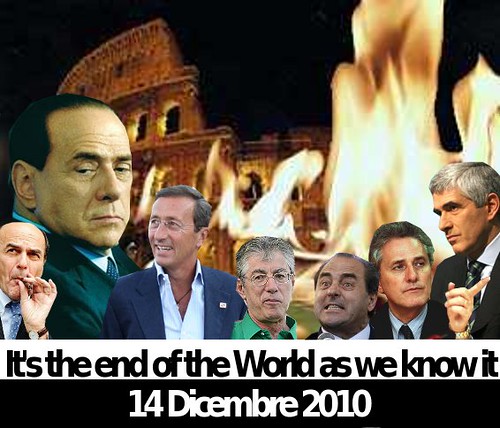 When federalism is not enough. Belgium is going through the longest political crisis of the old continent and now threatens to secede: ben 223 days without a government since the elections last June. Beating the previous European record of Holland (208 days in 1977), now looks to Iraq (289 days). At the bottom, the outsider Côte d'Ivoire for 55 days without executive.
When federalism is not enough. Belgium is going through the longest political crisis of the old continent and now threatens to secede: ben 223 days without a government since the elections last June. Beating the previous European record of Holland (208 days in 1977), now looks to Iraq (289 days). At the bottom, the outsider Côte d'Ivoire for 55 days without executive.The origin of all, the division between the Flemish separatist party N-VA and the Walloon Socialist Party PS, unable to reach agreement after six months of negotiations. Tip the scales in language issues, taxation and reform of the federal state between the Flemish and Walloons, never resolved a controversy that reached its peak in recent days.
So much so that the specter of separation of the country is no longer a utopia. Besides its secession was a point in the electoral program of the Flemish N-VA party, the moral winner of the last election thanks to the avalanche of votes cast in Flanders. Belgium is officially a constitutional monarchy in 1993 to become federal state rounds of reforms sought by the Flemish part, driving the economic heart of the country where the majority of the Belgian population, it produces nearly 60% of GDP and the unemployment rate is almost a third of the south.
Yes because even though united on the map, Belgium is strongly divided within itself: with three language communities (French, Flemish and German), the country consists of three regions: Flanders in the north, Wallonia in the south and the region Brussels-Capital Centre. Just Brussels, and his wealth, seem to remain the only two communities that bond would rather avoid each other.
A paradox, if you think that Belgium is home to its most institutional offices of that union that seeks to join the European Union under the same flag 27 different states. The fact is that the Flemish Socialist Johan Vande Lanotte, appointed by King Albert II to facilitate agreement between the two majority parties, threw in the towel after the rejection of compromise of the two major parties Flemish N-VA and the Christian of CD-democrats & V.
"You can lead a horse to the river, but you can not make him drink," said dejected Vande Lanotte. When in doubt of who the horseback, to pay the expenses of the political is the entire country: the Belgian public debt amounted to EUR 340 billion, 100% of GDP, and the International Monetary Fund that has already shown the its concern about the rating agency Standard & Poor's has threatened to downgrade Belgium, the risk to the end of Greece and Ireland is realized.
Hard Elio Di Rupo, head of the Walloon Socialist Party of Italian origin: "We begin to wonder if the goal of N-VA is about to bring the country into a political dead end and new elections by creating a climate of intense tension between its communities. " Bart de Wever, the "Lion of Flanders" and leader of the separatist party, said it was "humbled" by the refusal of French-speaking part of its compromise proposal, presented last October, which provided for greater regional autonomy.
Despite all the Belgian press (French and Flemish) parties to call a national responsibility, Di Rupo is pessimistic: "De Wever looking for an excuse to destroy the federal state and create a Republic of Flanders." Even after federalism, secession. Meanwhile, the Belgian people is preparing to take to the streets.
University students in Brussels organized a big demonstration on Sunday called "Shame" (shame) to clamor for the formation of a government, no matter what color. But even here there are divisions, the collective "The fistone de Belgique (Belgium's son), who is pushing for the non-participation to the cry of" No Governement, Great Country "(No government, big country).
Luckily, the motto of Belgium is "The Union is strength".



- Secessionism alive and well in South Carolina (20/12/2010)
- Collegati a Facebook e riceverai sconti: il fenomeno Deals | Marketing Non Convenzionale - Ninja Marketing (13/11/2010)
- Tawheed and Sunnah is the Straight Path(Sirât-ul-Mustaqeem) to Jannah (20/01/2011)
- Fusion: Cos Cerasuolo di Vittoria and smoked Texas ribeye (01/10/2010)
- Alla Mischenko : Ukraine (19/12/2010)
No comments:
Post a Comment